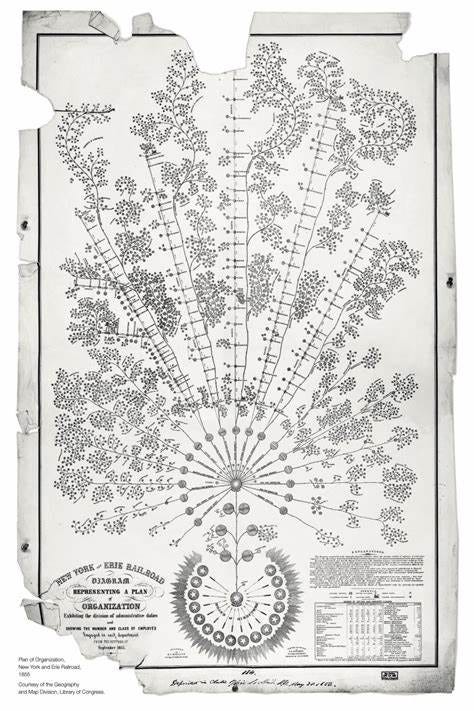One simple deregulation that would save thousands of lives
What we’ve been reading: urbanism, medicine, science, tech, AI, housing, energy, economics, culture, work and more ...
We’re hosting a Stripe Press pop-up coffee shop and bookstore on Saturday, June 28, in Washington, DC. RSVP here if you can make it.
On building (and rationing) infrastructure
Getting clean water to people has been a problem for as long as humans have had permanent settlements. Currently 2 billion people are drinking water polluted by faeces, chemicals and other contaminants and many water systems in the rich world are now over a century old and failing.
A conversation with Stephanie Pollack, former Massachusetts transportation secretary and Biden-era deputy administrator of the Federal Highway Administration, about why US transit megaprojects take forever and cost fortunes. There’s a strong incentive to give incredibly optimistic numbers – the only way to start a conversation about a $12 billion project is to pitch it as a $2 billion project. The scope creeps up as bridges, parks, and other giveaways are added to the plan and long timelines inflate prices as agencies are forced, by regulation, to buy work in small batches.
Brian Potter has written a list of 50 things he’s learned writing Construction Physics – not his experience writing a blog – things like ‘Construction has gotten much safer over time: not only have death and injury rates in construction fallen, but they’ve fallen much more than in agriculture or manufacturing.’
Congestion pricing in New York is working. Rush-hour travel time has fallen by 48 percent and complaints about car honking have dropped by 70 percent.
Cycling in London has increased by more than 70 percent since 2017.
Britain has become shabbier and more disorderly. Richer people in purpose-built commercial developments pay for their own cleaning, security and maintenance – activities that local governments are notionally responsible for.
A remote village in Arizona still receives its mail by mule.
Lives saved with gene-editing, antivenom, and deregulation
Together, a team at the University of Pennsylvania and Danaher, a conglomerate that manufactures medical products, healed a baby with personalized gene-editing.
In Sub-Saharan Africa antivenom prices are about $124 per dose – ruinous for people earning $2 a day. The market has collapsed into a ‘lemon’ equilibrium in which dubious products erode trust, governments hesitate to lend support and so manufactures won’t scale to bring down costs. Venoms themselves are wildly heterogeneous with different species, regions, and ages of snake delivering needing different responses. But, there has been some movement towards creating a universal antivenom. About 90 percent of lethality comes from just three toxins and high-throughput screening methods can filter candidates down to a few dozen molecules and programs like AlphaFold or Rosetta and assess whether the key proteins will stop working in places without cold storage.
Statins are basically safe – in the UK you have been able to buy Simvastatin on pharmacy shelves since 2004. Why not deregulate low-dose statins to make them regular over-the-counter drugs everywhere?
Lead turns to gold, gold turns into R&D, and R&D makes cheaper bacon.
Physicists can turn lead into gold – for a fraction of a second.
The US Food and Drug Administration has approved pigs, CRIPSRed to be immune to porcine reproductive and respiratory syndrome, for human consumption. Expect your pork from the Pig Improvement Company in late 2026.
Across craft, sport and software, speedy feedback loops are what allows us to improve. But biology still runs on slow cycles. Through things like directed evolution, we can already see how a process that is meant to happen on the multi-lifetime-scale can be sped up. To shrink the cycle time we can push for more robotics, invest in predictive models (and open up datasets to make them more effective), and generally call for a culture with less ‘masochistic patience’.
The best horse ever lived 50 years ago. No horse since has come close to Secretariat’s records and he was thought to be well-tempered and easy to train. (Was he doping?)
Geoengineering, robots, and quirky, old hardware.
Enhanced rock weathering is a method for removing carbon dioxide from the atmosphere. It speeds up the natural process by which silicate or carbonate rocks react with carbon dioxide and water to form stable minerals. Austin Vernon estimates that it can be less than $100 per ton removed at large scale, but only with careful rock selection, aggressive grinding, and clever design.
Kyle Vogt, co-founder of Twitch and Cruise – a self-driving car company – has started a new company: he’s building robot butlers. He talks about the challenges scaling robots, why he will never sell another company, and why he thinks Tesla had the right strategy for building autonomous vehicles.
It is possible to manufacture a complete smartphone in the US but it’s pretty low-spec and costs $2,000.
The Philips Machine is an analogue computer which uses fluidics to model how an economy works. While designed as a teaching tool, it was found to be surprisingly accurate and was used as an economic simulator.
Gotta catch ‘em all
How Claude learned to play Pokemon and what it teaches us about LLMs
AI 2027 tries to sketch out what a world with superhuman AI looks like. And here’s a summary and review.
Tyler Cowen and Avital Balwit (of Anthropic) discuss how they think our lives will change with AGI. They think we will have more time for leisure, our work will require us to be less agentic, that there will be human-only spaces, and that more people will start to rebel against the encroachment of AI into the things we love.
In Seeing Like a State, James C Scott popularized the idea that governments can only successfully regulate what they can measure. With AI, more things will become measurable and therefore under the scope of state control. This will likely mean better coordination of things we want, like traffic safety, but will – through things like identify verification, tracking, and administration – also make draconian, anti-liberal measures more likely too.
Planes in my back yard
There’s a suburb in California designed so people can conveniently park their personal planes.
Britain Remade has ideas about worker-friendly planning reforms. They recommend granting automatic planning permission in cases where the majority of residents vote to densify their council estates, building new towns near cities with robust job markets, designating regions of low environmental quality to fast-track onshore wind and solar projects, and aligning nuclear regulation with international standards.
The US has three different kinds of housing problems. First, places where there is too little housing of any kind. Second, places where housing is cheap by national standards but incomes are so low that people still can’t afford them. And third, places where the typical family can afford a home but they have little choice about what type.
Homes used to be much more uncomfortable. ‘In the Middle Ages, people didn’t so much live in their houses as camp in them’. But incrementally, by introducing more rooms – for privacy, electricity for light, warmth and easy cleanliness, they became pleasant.
Why Chinese solar panels are cheap and British nuclear is expensive
Chinese batteries and solar panels are cheap because of low labor costs, high levels of automation in manufacturing, and cheap energy.
Nuclear energy in the UK is expensive because of regulation.
A French nuclear-fuel giant (Orano) and a Washington DC startup (Curio LV) just struck a deal that could turn spent nuclear fuel into yet more energy – something the US abandoned almost half a century ago over bomb-making fears. Nuclear fuel is also the hip new workout accessory. There are even nuclear raves in Washington DC.
The Frontier Observatory for Research in Geothermal Energy, or FORGE is a lab conducting research into enhanced geothermal systems. While enhanced geothermal systems are yet to achieve broad commercial viability, FORGE has successfully attracted private capital to geothermal by derisking some of the initial research.
And if these links aren’t enough here’s a list of sources if you’re interested in keeping up-to-date on energy.
Ideas are easy to find; growth, jobs and a European Single Market, on the other hand …
This working paper makes the case that economic growth is getting harder to find – not ideas. The authors find that researchers’ patenting productivity is increasing.
The Single Market, as it is broadly understood, is a myth: mutual recognition of standards fails in practice, the EU directives do not harmonize EU legislation as member states often gold-plate the regulations, and the EU Commission is not enforcing the Single Market.
New grads are now more likely to be unemployed than the average American. The graph shows the decline started in the early 2010s, so it can’t all be explained by AI.
Parenting across cultures
Matrilineal descent is rare in human societies that keep cattle. This paper shows that the switch to patrilineal descent follows cattle, not the other way round.
How do parents maintain influence over their children when they move across the world? They try to teach them religion and choose their spouses for them, but this has mixed results.
There are still stark differences in health between eldest sons and other siblings in Indian families. And, as families in India shrink, if a preference for having at least one son persists, then we might see an even greater desire for sex selection.
What a way to make a living
Printing books, silica gel, clothing, Australian state capacity, and more progress stuff
See inside the factory printing hardback copies of Pride and Prejudice.
Why are silica gel packets everywhere? It’s because we now ship and store things that are vulnerable to dampness. Silica gel is a sign of globalization.
US households now spend only 3 percent of their budgets on clothing, down from 10 percent in the 1960s — we own more clothes but they are so much cheaper. The general consensus that during this time the quality has fallen. Making thick and durable clothing that a person only wears for a season would be a waste of resources. In cases where performance matters, like running shoes, PPE, and insulated hiking clothes, quality has soared. High-end classics are still durable, they’re just expensive.
Australia has unusually good state capacity. This literature review says it’s because Australians are obedient to impersonal authority making it easier to enforce policies like compulsory seat belts, because they trust their institutions which means they don’t suffer from American-style adversarial legalism or public service risk-aversion, because Australia has high quality, respected organisations that produce independent policy research, and because it pays its public servants well.
A list of all the organizations that are part of the progress movement.
If you live in Dublin, consider joining The Fitzwilliam Reading Group.






> Cycling in London has increased by more than 70 percent since 2017.
The article is actually about the City of London aka the Square Mile, which is distinct from Greater London. It has about 1000x less residents and about 500x less area
The Secretariat thing is false--it was a great horse but is not even the consensus GOAT horse, let alone a greater GOAT than any other athelete. https://www.nbcbayarea.com/news/sports/horse-of-the-century-man-o-war-vs-secretariat/2020914/
Perhaps passing on the unsourced claims of random twitter users is not the best use of your resources.